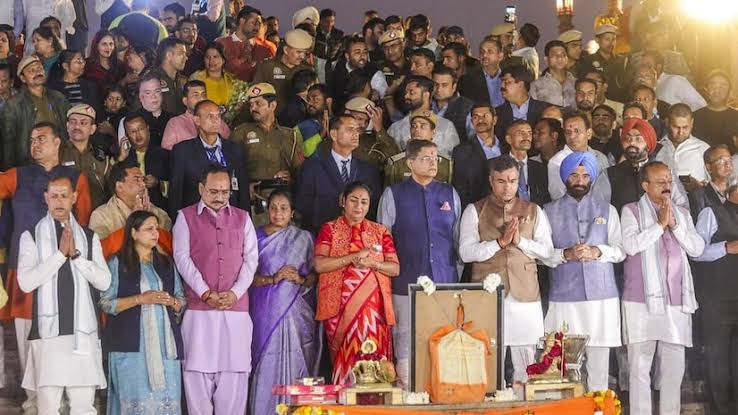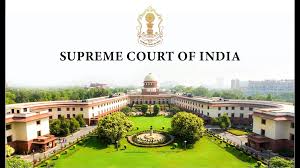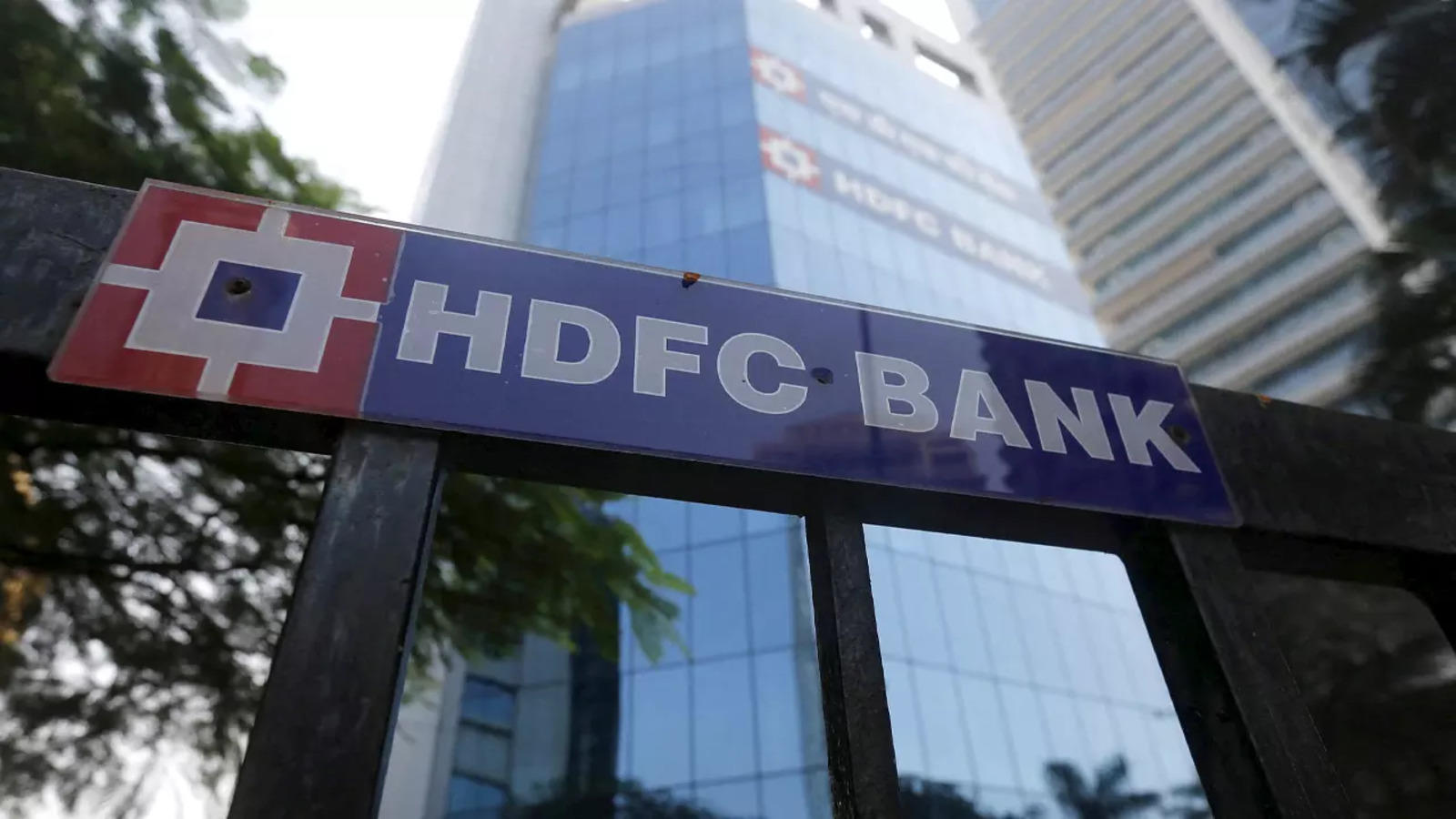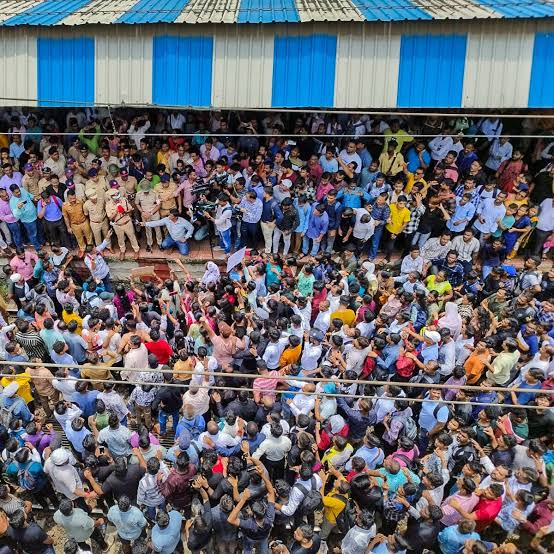Delhi’s newly sworn-in Chief Minister, Rekha Gupta, marked the beginning of her tenure with a visit to Vasudev Ghat, where she and her cabinet colleagues performed ‘Yamuna Aarti’ before holding their first official meeting. The act symbolized a commitment to addressing one of the city’s most pressing concerns—the pollution of the Yamuna River, which had been a focal point of political debate during the recent elections.
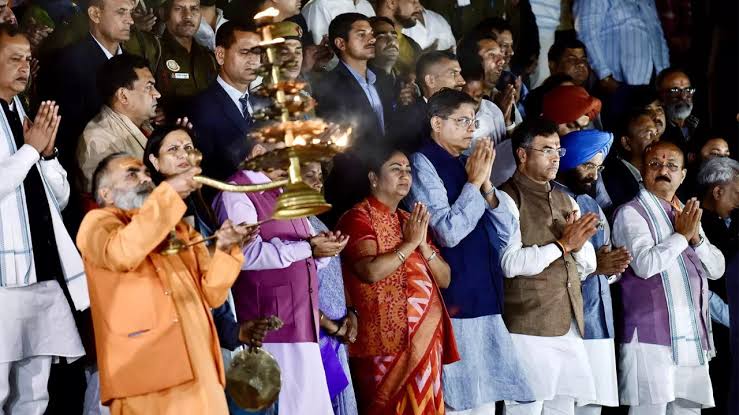 The issue of the river’s deteriorating condition became a major talking point in the run-up to the Delhi Assembly elections, with opposition parties, including the BJP and Congress, targeting the Aam Aadmi Party (AAP) government for its failure to clean the Yamuna. Former Chief Minister Arvind Kejriwal faced sharp criticism from both parties, making river pollution a central electoral issue.
The issue of the river’s deteriorating condition became a major talking point in the run-up to the Delhi Assembly elections, with opposition parties, including the BJP and Congress, targeting the Aam Aadmi Party (AAP) government for its failure to clean the Yamuna. Former Chief Minister Arvind Kejriwal faced sharp criticism from both parties, making river pollution a central electoral issue.
Gupta, a first-time MLA from Shalimar Bagh, took the oath of office at a grand ceremony at Ramlila Maidan, where Lieutenant Governor V.K. Saxena administered her oath. Alongside her were key leaders from her party, including Delhi BJP President Virendra Sachdeva and cabinet members Parvesh Sahib Singh, Ashish Sood, Manjinder Singh Sirsa, Ravinder Indraj Singh, Kapil Mishra, and Pankaj Kumar Singh. Their presence at the ‘Maa Yamuna Puja’ signified a united front in tackling the city’s environmental and governance challenges.
As bhajans echoed at the ghat and chants of ‘Jai Shri Ram’ and ‘Yamuna Maiya Ki Jai’ filled the air, the event took on a deeply symbolic tone, blending governance with cultural reverence. For many, this gesture was seen as more than just a ritual—it was a promise of change, a commitment to restoring the lifeline of the city, and a reflection of Gupta’s leadership approach.
With the new administration now in place, all eyes are on the steps it will take to deliver on its pledges. The Yamuna’s condition remains a pressing issue, and citizens hope that this early display of commitment translates into real, lasting improvements for the capital.

